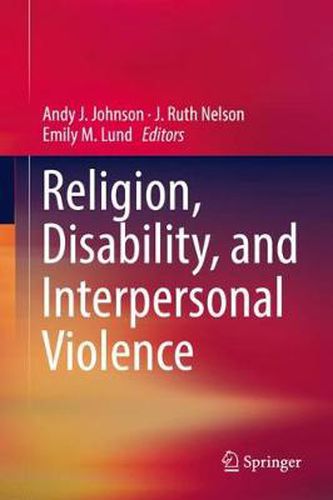Readings Newsletter
Become a Readings Member to make your shopping experience even easier.
Sign in or sign up for free!
You’re not far away from qualifying for FREE standard shipping within Australia
You’ve qualified for FREE standard shipping within Australia
The cart is loading…






This title is printed to order. This book may have been self-published. If so, we cannot guarantee the quality of the content. In the main most books will have gone through the editing process however some may not. We therefore suggest that you be aware of this before ordering this book. If in doubt check either the author or publisher’s details as we are unable to accept any returns unless they are faulty. Please contact us if you have any questions.
This groundbreaking reference offers mental health professionals a rigorous, nuanced guide to working with abuse survivors with disabilities in religious communities. Expert contributors unravel complex intersections of disability, religion, and identity in the context of gender violence (including spotlights on racial, gender, and sexual minorities, Deaf persons, and men), and offer survivor-centered best practices for intervention. Chapters explore how responses from clergy and other religious figures may sometimes prevent survivors from seeking help, and how faith leaders can help to empower survivors. The concepts and research presented here support multiple purposes, from removing barriers to survivor services to working with religious communities to be more inclusive and transparent.
Among the topics featured:
From barriers to belonging for people with disabilities: Promising pathways toward inclusive ministry.
Empowering women with intellectual disabilities to resist abuse in interpersonal relationships.
Race, culture, and abuse of persons with disabilities.
Ableist shame and disruptive bodies: Survivorship at the intersection of queer, trans, and disabled existence.
From the narratives of survivors with disabilities: Strengths and gaps between faith-based communities and domestic violence shelters.
Religion, Disability, and Interpersonal Violence brings transformative insights to psychologists, social workers, and mental health professionals across disciplines providing guidance within religious and disabled communities in their clinical practice. It also provides valuable background for researchers seeking to examine the interface between religious culture and the abuse of persons with disabilities.
$9.00 standard shipping within Australia
FREE standard shipping within Australia for orders over $100.00
Express & International shipping calculated at checkout
This title is printed to order. This book may have been self-published. If so, we cannot guarantee the quality of the content. In the main most books will have gone through the editing process however some may not. We therefore suggest that you be aware of this before ordering this book. If in doubt check either the author or publisher’s details as we are unable to accept any returns unless they are faulty. Please contact us if you have any questions.
This groundbreaking reference offers mental health professionals a rigorous, nuanced guide to working with abuse survivors with disabilities in religious communities. Expert contributors unravel complex intersections of disability, religion, and identity in the context of gender violence (including spotlights on racial, gender, and sexual minorities, Deaf persons, and men), and offer survivor-centered best practices for intervention. Chapters explore how responses from clergy and other religious figures may sometimes prevent survivors from seeking help, and how faith leaders can help to empower survivors. The concepts and research presented here support multiple purposes, from removing barriers to survivor services to working with religious communities to be more inclusive and transparent.
Among the topics featured:
From barriers to belonging for people with disabilities: Promising pathways toward inclusive ministry.
Empowering women with intellectual disabilities to resist abuse in interpersonal relationships.
Race, culture, and abuse of persons with disabilities.
Ableist shame and disruptive bodies: Survivorship at the intersection of queer, trans, and disabled existence.
From the narratives of survivors with disabilities: Strengths and gaps between faith-based communities and domestic violence shelters.
Religion, Disability, and Interpersonal Violence brings transformative insights to psychologists, social workers, and mental health professionals across disciplines providing guidance within religious and disabled communities in their clinical practice. It also provides valuable background for researchers seeking to examine the interface between religious culture and the abuse of persons with disabilities.